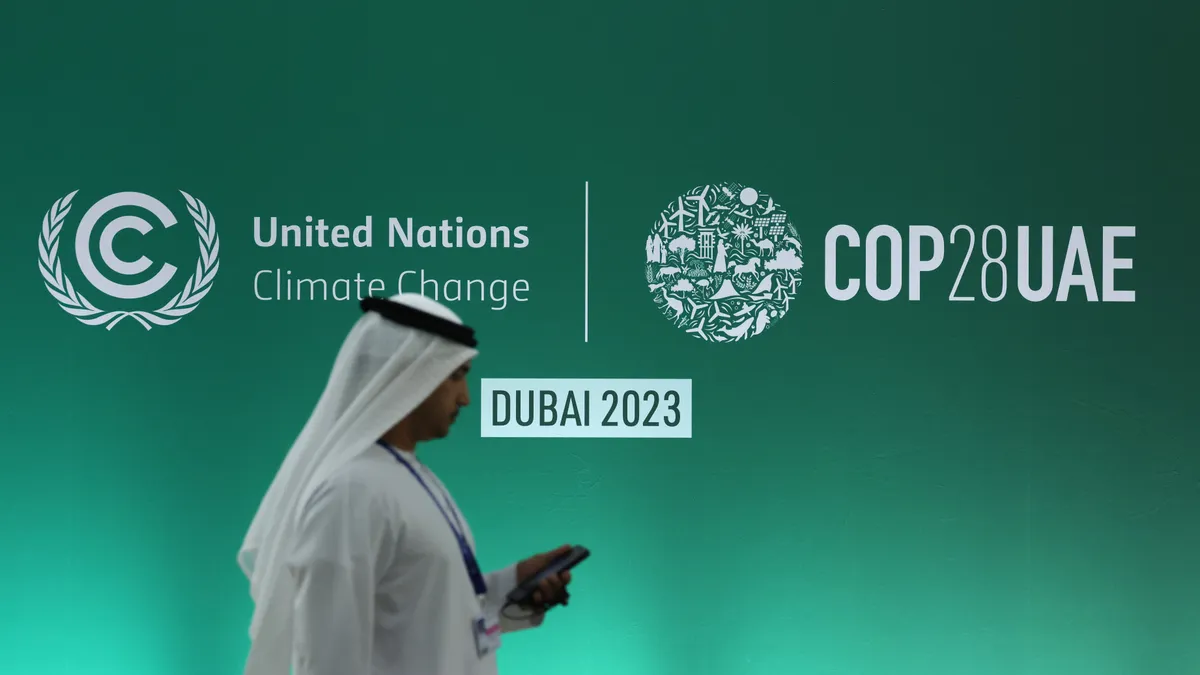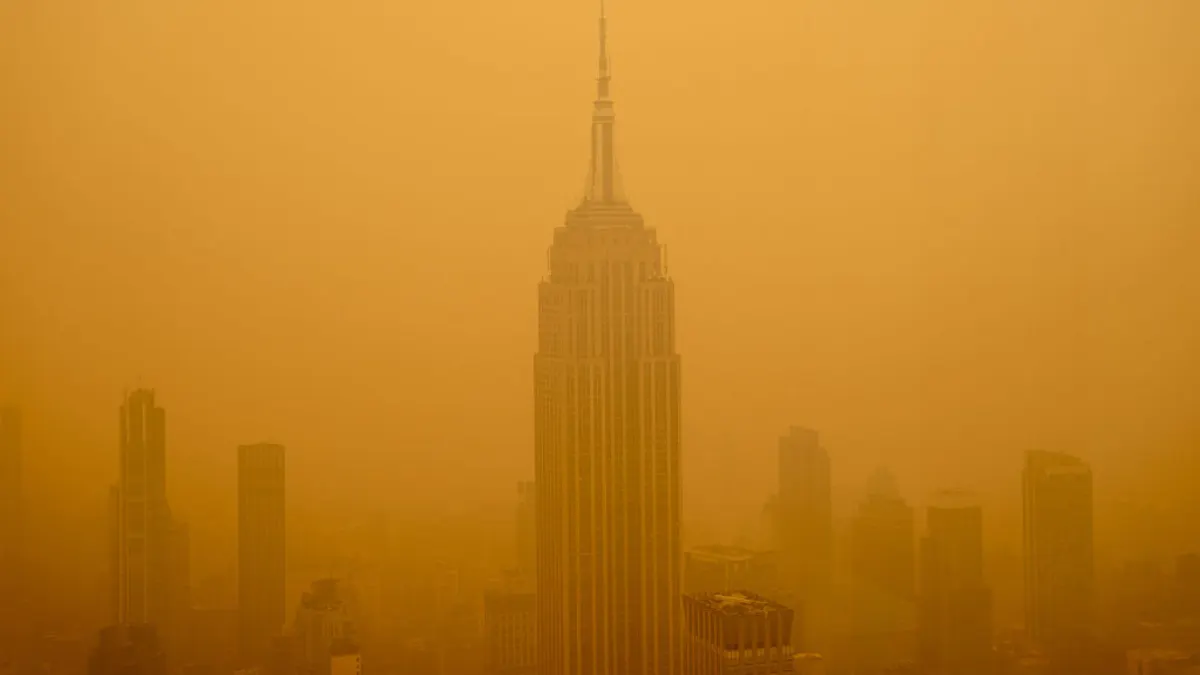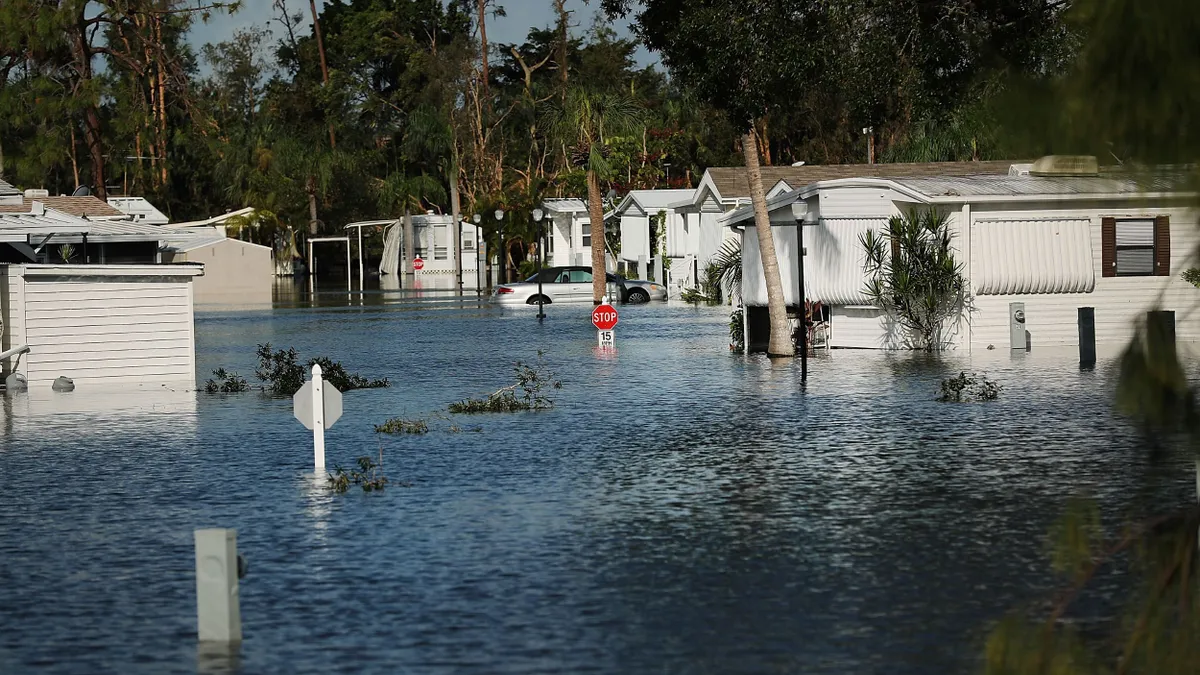The United Nations’ annual climate summit officially kicked off yesterday, and many local leaders are already making it clear that they expect nations to take more ambitious climate action — even if it means going against the wishes of the fossil fuel industry.
“COP28 must be the COP of cities as well as national governments,” C40 Cities, a network of nearly 100 mayors worldwide, including 14 in the U.S., said in a news release.
In a Nov. 30 letter to heads of state, the organization’s two chairs called for global leaders to commit to rapidly phasing out fossil fuels. The letter, signed by the mayors of London and Freetown, Sierra Leone — Sadiq Khan and Yvonne Aki-Sawyerr, respectively — urged the world to halt investment in new fossil fuel projects and halve fossil fuel use by 2035.
The mayors warned against “false solutions” that hinge on pulling climate pollution out of the atmosphere. “There is no viable technology currently available or expected to be in the near future that can extract carbon created by fossil fuels at the scale, pace and cost we need,” the letter says.
Though the letter says renewable energy must be tripled and energy efficiency doubled by 2030, it stressed that “the most developed and historically responsible countries must act faster.” Countries such as the U.S., Canada, Japan and those in western Europe fall into this category.
The mayors demanded that nations also put their money where their mouths are by moving funds that currently subsidize fossil fuels to accelerate a just clean energy transition. Cities “are facing an over US$3 trillion gap in urban climate finance at the same time that fossil fuel subsidies are at the highest level ever,” a C40 news release says.
Financing for local climate action is also top of mind for ICLEI, a global network of sustainability-minded local governments, at COP28, said Angie Fyfe, executive director of the organization’s U.S. office. Fyfe described the Inflation Reduction Act as the “last building block that needed to be in place” in the U.S., but said that “we need to advocate that … that level of investment from the national government continues, even as political administrations change, as they certainly will over the years and decades ahead.”
Other ICLEI priorities at COP28 include turning national plans into tangible local strategies and sharing findings from local “stocktakes” evaluating climate progress. ICLEI has a free toolkit for local governments interested in doing such an evaluation in their community. “The work that I feel like is important is really what happens at home,” Fyfe said.
A year of COP firsts
For the first time this year, COP will host a Local Climate Action Summit to zero in on the role of local governments in global climate progress. The two-day event, which kicked off Dec. 1, is “an opportunity to bring more mayors than typically attend a COP,” Fyfe said. Bloomberg Philanthropies, the local summit’s host, provided transportation and lodging stipends for a number of mayors, she said. “Municipal budgets don’t generally accommodate international travel,” Fyfe added.
She predicts that this gathering may have a transformational effect on mayors, similar to the one she saw at COP21 in Paris at a gathering of city leaders. “They really got inspired to go back home and to do that hard work that happens day in and day out in a city government and with partners on the ground,” Fyfe said.
This year marks Columbus, Ohio, Mayor Andrew Ginther’s first-ever COP. The vice president of the U.S. Conference of Mayors is leading a delegation of other mayors to the summit, and for him, the event is an opportunity to confirm that the U.S. is a global climate leader.
“We believe it's important to be in Dubai to make clear that the U.S. remains not only committed to solving the climate challenge but leading the charge,” Ginther said. This comes as President Joe Biden drew the ire of climate activists and experts for skipping the summit, although due to a last-minute change of plans, Vice President Kamala Harris is attending two days of the conference.
Ginther said that cities are the cornerstone of successful emissions reductions in the U.S., more so than any other level of government. “We say all the time there are three kinds of elected officials: Republicans, Democrats and mayors,” he explained. “Mayors, for us, climate is not political. There's no such thing as a Republican or Democratic hurricane, flood or excessive heat wave.”
Ginther hopes COP28 will be a venue to share best practices with other local leaders. Asked what Columbus successes he’d highlight at COP28, Ginther noted the city’s plans for a code that ingrains trees in infrastructure plans, its work to provide residents with clean energy through community choice aggregation and its partnerships with community organizations to create green jobs pipelines in historically disadvantaged, underserved neighborhoods.
He’s hoping to pick the brains of other leaders on how localities can pursue climate action when faced with a state government “that is not aligned with science, research [and] best practices.”
“How do you navigate that and leverage opportunities when sometimes your state is going the opposite direction?” he said.




















